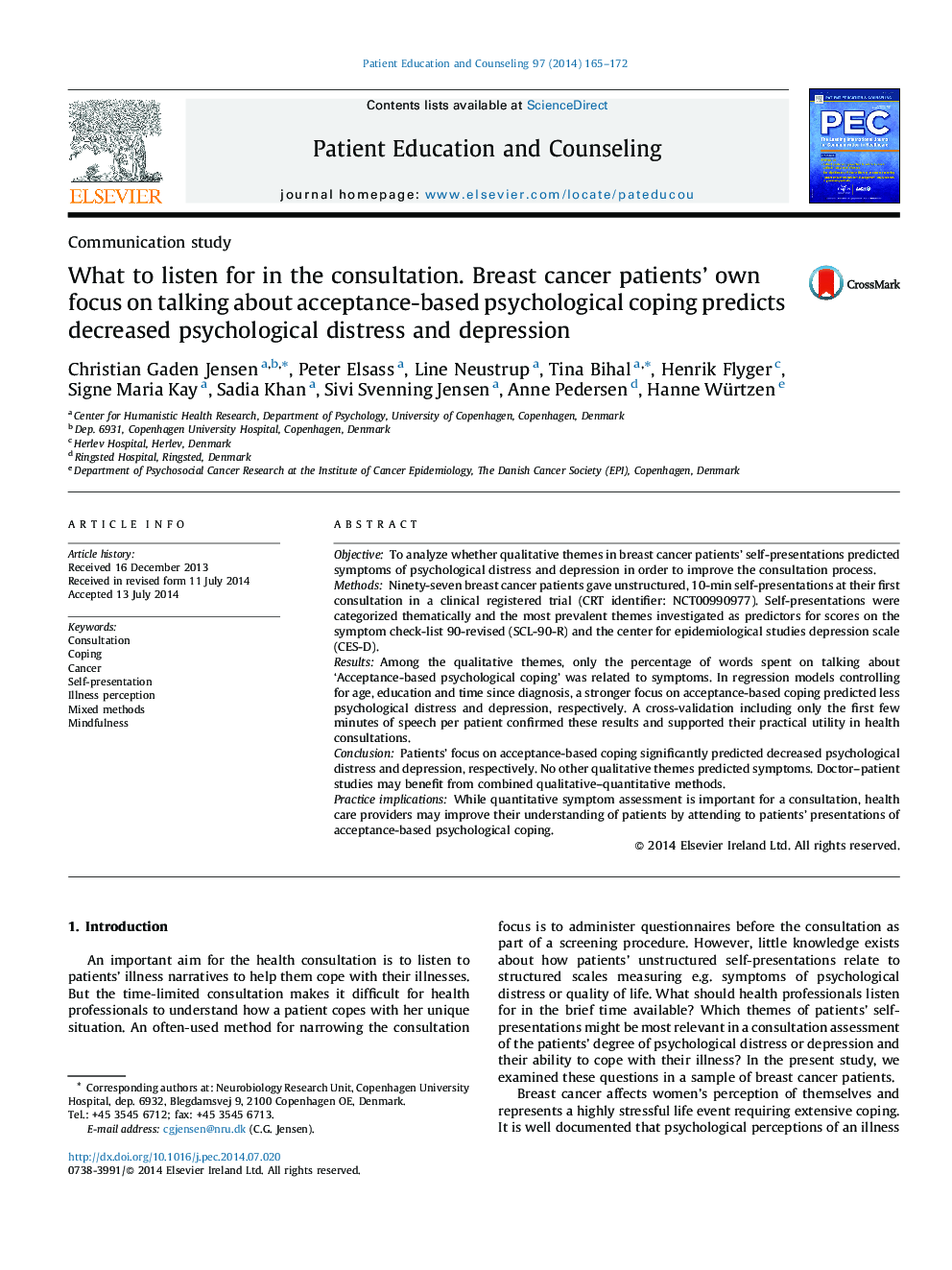| Article ID | Journal | Published Year | Pages | File Type |
|---|---|---|---|---|
| 3816151 | Patient Education and Counseling | 2014 | 8 Pages |
•Limited knowledge exists on the importance of qualitative themes in patients self-presentations.•We examined unstructured self-presentations from 97 cancer patients.•Patients’ focus on talking about acceptance predicted their symptoms of distress.•The effect sizes were clinically important after controlling for background factors.•This finding was replicated when analyzing only the first three themes per patient.
ObjectiveTo analyze whether qualitative themes in breast cancer patients’ self-presentations predicted symptoms of psychological distress and depression in order to improve the consultation process.MethodsNinety-seven breast cancer patients gave unstructured, 10-min self-presentations at their first consultation in a clinical registered trial (CRT identifier: NCT00990977). Self-presentations were categorized thematically and the most prevalent themes investigated as predictors for scores on the symptom check-list 90-revised (SCL-90-R) and the center for epidemiological studies depression scale (CES-D).ResultsAmong the qualitative themes, only the percentage of words spent on talking about ‘Acceptance-based psychological coping’ was related to symptoms. In regression models controlling for age, education and time since diagnosis, a stronger focus on acceptance-based coping predicted less psychological distress and depression, respectively. A cross-validation including only the first few minutes of speech per patient confirmed these results and supported their practical utility in health consultations.ConclusionPatients’ focus on acceptance-based coping significantly predicted decreased psychological distress and depression, respectively. No other qualitative themes predicted symptoms. Doctor–patient studies may benefit from combined qualitative–quantitative methods.Practice implicationsWhile quantitative symptom assessment is important for a consultation, health care providers may improve their understanding of patients by attending to patients’ presentations of acceptance-based psychological coping.
